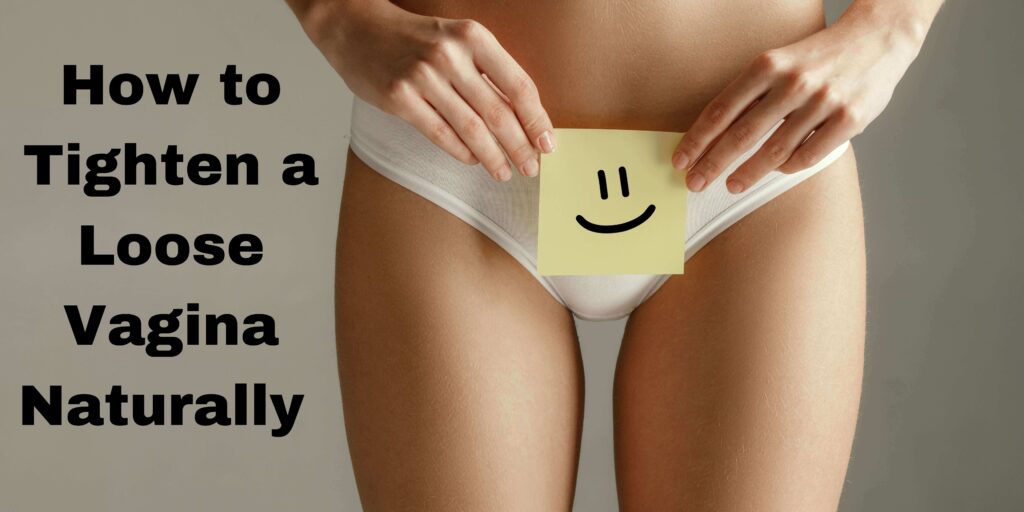Do you feel as though your vagina is no longer firm or tight? Due to many factors like childbirth, ageing, and hormonal changes, vaginal laxity, also known as vaginal looseness, can be a common problem for women. The overall health and wellbeing of women includes their vaginal health. Even so, many women may struggle with vaginal flexibility and tone, raising questions about how to tighten a loose vagina! Having a “loose” vagina is the usual term used to describe this.
The stretching and ripping of the vaginal tissue after delivery can cause a loss of tone and suppleness in women who have given birth vaginally. Moreover, as women age, the vaginal muscles and tissues may weaken and become less flexible, giving the vagina a looser sensation.
What is Vagina Tightening & Techniques?
The process of making how to tighten a loose vagina and firmer is known as vaginal tightening. This can be accomplished via a variety of techniques, including workouts, gadgets, and drugs.
-
Vagina Tightening Exercises
Although vaginal looseness is a common problem, many women still find it uncomfortable and embarrassing. Pelvic floor exercises are one of the best ways to tighten your vaginal muscles. Your pelvic floor muscles can become stronger through kegel exercises, which helps lessen vaginal tightness. These exercises are useful for enhancing bladder control and can be performed whenever and anywhere. This may assist to increase suppleness and tone while also enhancing sexual arousal and pleasure.
-
Vagina Tightening Cream
Topical products called vaginal tightening cream make the vagina more firm and tight. Natural herb extract, which are said to have astringent characteristics, are among the components found in these lotions. It is significant to highlight that the usefulness of these creams is only partially supported by scientific research.
-
Vagina Tightening Surgical Procedures
Surgical procedures may potentially be a possibility in rare situations to treat vaginal looseness. Vaginal rejuvenation or tightening is a common operation that uses laser or radiofrequency technologies to increase the creation of collagen and enhance vaginal tone and suppleness. Women who have not witnessed progress from non-surgical therapy may benefit from this procedure.
The fact that not all women with “loose” vaginas want or need therapy should not be overlooked. In fact, some women could find more comfort or pleasure in a vagina that feels looser. Also, it’s crucial for women to feel at ease and confident in their bodies. Having a “loose” vagina does not necessarily signify bad vaginal health.
Conclusion
There are many ways how to tighten a loose vagina, including exercises, gadgets, and drugs. Despite the availability of topical medications like creams and gels, it is crucial to speak with a healthcare professional before utilising them. To enhance general vaginal health, it’s also critical to maintain a healthy lifestyle and use good hygiene.
FAQ:
Q: Can vaginal tightening exercises enhance the pleasure of sexual activity?
A: Certainly, by enhancing vaginal tightness and sensitivity, improving your pelvic floor muscles can enhance sexual enjoyment.
Q: How long do vaginal tightening exercises take to produce results?
A; A few weeks to a few months may pass before you feel a difference in the tightness of your vagina and the tone of your muscles in your pelvic floor.
Q: Are vaginal tightening treatments and gels safe to use?
A: Although some topical products promise to reduce vaginal tightness, their efficacy is not well supported by science. Before using any vaginal tightening products, it is crucial to speak with a healthcare professional.
Q: Is vaginoplasty a safe procedure?
A: A surgical technique, vaginoplasty has possible risks and side effects. To discuss the potential risks and advantages of this procedure, it is crucial to speak with a licenced and experienced healthcare provider.
Q: Do hormonal changes have an impact on vaginal tightness?
A: The tightness and elasticity of the vagina might vary due to hormonal changes, such as those that take place during menopause. In these circumstances, hormone replacement therapy might be an option to enhance vaginal health.

